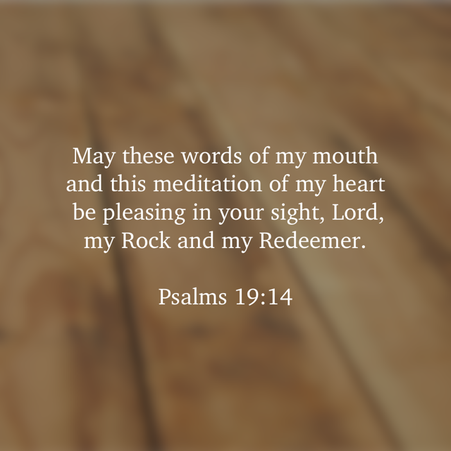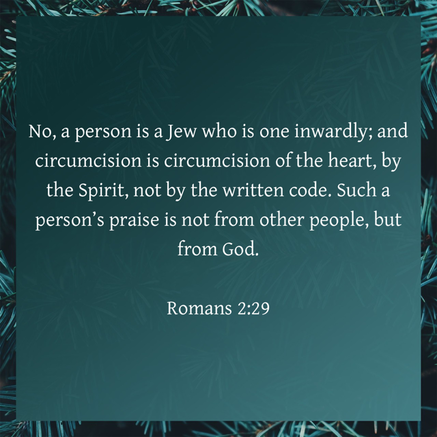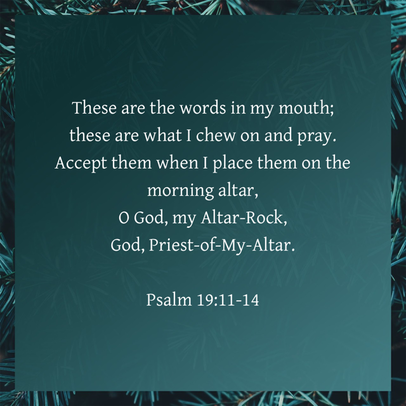|
Good morning!
We're so glad you decided to join us today!
When we meet in person, we share our joys and concerns with each other. If you have prayer requests to share, you can add them to the comments on this post. When you are ready, you may use the prayer below to get started:
Gracious God, we gather this morning facing various challenges in our lives. We admit that we are fearful and uncertain about what lies ahead, that we are ill-equipped to handle them in our own strength. And so we turn to you, and we ask you to go before us and to help us overcome our problems.
Because you are a God who cares about us, we praise you and we thank you. In Christ’s name. Amen.
Today's lesson is on 2 Chronicles 20:13-20.
Lesson context
The book of 2 Chronicles covers the period from 970 BC to 536 BC. It spans from Solomon, the last king of Israel as a united monarchy, to Cyrus, the king of Persia who ended the Babylonian exile. Readers may wonder why the books of 1 and 2 Chronicles are useful since much of their content mirrors that of 2 Samuel and 1 and 2 Kings. A clue is found in the title of 1 and 2 Chronicles as appearing in the Greek version of the Old Testament, known as the Septuagint. There the title translates into English as “Things Omitted.” “Things Omitted” is an appropriate designation for the text of today’s lesson. It focuses on events during the reign of Jehoshaphat, king of Judah (the southern kingdom of the divided Israel) from about 872 BC to 848 BC. The text of 2 Chronicles 17:1-21:3 has much more information about him than is recorded in 1 Kings 15:24 and 22:1-50. Jehoshaphat reigned during the period of the divided monarchy in Israelite history. He was one of the more godly kings of Judah. He is noted for his efforts to rid Judah of idol worship and to promote the teaching of God’s law throughout the land. Also noteworthy is the respect he was held in by surrounding people and the attention he gave to various building projects and administrative reforms. On the downside, however, he entered into an ill-advised alliance with Ahab, king of northern Israel, who enlisted Jehoshaphat’s help in retaking some territory from the Arameans. After hearing of God’s displeasure with that alliance, Jehoshaphat reorganized his government both physically and spiritually. Later a coalition of enemy forces began marching toward Judah. That resulted in the king and his country becoming unified in fasting and public prayer — prayer that confessed utter reliance on the Lord to defeat this threat (1 Kings 20:3-12). The Lord’s response came next.
Facing a crisis (verses 13 to 17)
In this dire situation, representatives from every town came together. The crisis was so severe, in fact, that not only men but also women and children participated. After hearing the king’s prayer, they awaited God’s response. Then the Spirit of the Lord “came on” a man named Jahaziel. As the lesson points out, during the Old Testament era, God’s Spirit seems to have come on certain individuals for a limited time and a specific purpose. In this case, it was so that God could speak through him to the people of Judah. Through him, God tells the people not to be afraid or discouraged by the vast army that is approaching. That’s because the battle is God’s, not theirs. That would have been comforting news to those who believed the message. The coalition army was only about 25 miles away and could be there in less than three days. The instructions are not for the people to do nothing, however. The next day they are to march a particular location, the Pass of Ziz, less than 20 miles from Jerusalem. Although they are to take their positions and stand firm, they will only witness how the Lord delivers them. The words are similar to the ones Moses spoke to the people centuries earlier when the Egyptians pursued them. (See Exodus 14:13-14.)
‘Faith-ing’ a crisis (verses 18-20)
The Lord had heard the king’s prayer and was answering it. Worship was the proper response. The king bowed down, and the people followed his example. Then some from the priestly families of Kohath and Korah got up from the ground and began praising God loudly. Kohath was the second of Levi’s sons. Korah is best known for organizing a rebellion against the authority of Moses. He and those who followed him were swallowed by the earth, but not all the Korahites joined in the rebellion. These are descendants of those who did not rebel. What a contrast it is between these descendants, who rose up to praise God, and some of their ancestors, who rose up to defy Moses! As they set out, King Jehoshaphat calls on his people to have faith in the Lord and to believe in the message they had heard. By having faith in the prophetic message, they will succeed, he tells them. Elsewhere in the Old Testament, when God’s people ignored or mocked the prophets, God sent judgment upon them. (See, for example, 2 Kings 17.) The people of Judah chose to listen to God’s words in this case, and God brought them a providential and even miraculous deliverance. Although it’s not part of today’s lesson, when the people of Judah arrived, instead of finding a vast army, they found a multitude of dead bodies. The biblical account does not tell exactly how this happened but only that the Lord set up ambushes for them and the coalition forces began fighting among themselves. Some commentators speculate that angels initiated a battle, and the different forces began fighting among themselves. Others suggest that a band of desert wanderers attacked a portion of the army, and the allies began attacking each other. In any case, the people were able to plunder their enemies possessions. Both the king and his people returned to Jerusalem just as they had left it — in triumphant praise and worship of the Lord.
Conclusion
King Jehoshaphat had offered a passionate plea to the Lord for help, admitting that neither the king nor his people had any strategy or resources to confront the oncoming threat. Perhaps as his prayer progressed, his voice grew louder, possibly even trembling as he reached the end and declared his utter dependence upon God: “We do not know what to do, but our eyes are on you” (2 Chronicles 20:12). Then came Jahaziel’s Spirit-empowered words. The people’s “uplook” changed their outlook. All of us can probably recall a time when a passage of God’s Word was especially reassuring and helped get us through difficult circumstances. We may not have felt as desperate as Jehoshaphat did, but we experienced the energy that comes from God’s encouragement. We may not be like Jahaziel, who encouraged a king and his nation when the Spirit of God came upon him. But perhaps during the course of a day, someone will come to mind that we should share a Scripture passage with by a phone call, text message, email or postcard. Who might that be?
Prayer
Father, our culture and our world are often characterized by speech and actions that oppose your truth. Keep our eyes on you daily, that we may escape their influence! Thank you for the one who have encouraged us over the years through your promises. May we seek to pass that blessing on to others. In Jesus’ name we pray. Amen.
Questions for discussion:
Benediction
Today's benediction is from the New International Version.
Next week's lesson will be on Romans 12:3-8.
0 Comments
Happy New Year!
Good morning! We're so glad that you've decided to start the new year by studying God's word with us!
When we meet together, we take time to share our joys and concerns. Consider your past week. If you have any prayer requests, you can share them in the comments on this post. When you are ready, use the prayer below (source) to get started.
Father God, we gather here today under your care and protection. Thank you for your lovingkindness that never fails us. We thank you for those with us, that you would guide our thoughts and actions to bring you glory. Strengthen us and fill us with your peace. May we love and serve each other as Jesus has shown us. Fill us with the Holy Spirit to do your good work on earth. Amen.
Today's lesson is on 2 Chronicles 7:12-22.
God Promises to Hear and Forgive
At the beginning of chapter 7 it describes how King Solomon prayed for the acceptance of the temple and fire came down from heaven and consumed the burnt offering and the sacrifices and the glory of the Lord filled the temple. This was a dramatic and visible proof of God's approval. King Solomon offered a sacrifice of twenty-two thousand bulls and one hundred and twenty thousand sheep. Each animal was ritually sacrificed and a portion was dedicated to the Lord and a portion given to the priest and the people. God still had to be honored through blood sacrifice, both of atonement and as a demonstration of fellowship with God. It had been said that no height attained, no work done, no blessings received is in itself sufficient to ensure our continuance in favor. Nothing but continued fidelity.
Verse 12 - 13
God choosing a permanent home within Jerusalem cemented the promised land as the place he had chosen for Israel. Until this point, God had been content with the tabernacle. The temple that Solomon built replaced the tabernacle as the center of worship in Israel, signified by the relocation of the Ark of the Covenant to the temple. The temple was important but the Lord was not dependent on the people having a temple in their midst for him to be present with them. God named some punishments for turning away from him. Drought is caused by an extended period of no rain. At the opposite end of this spectrum, we expect flooding, but locusts can also represent the devastation of very wet conditions. Locusts are a subset of grasshoppers. These insects experience a drastic change when heavy rains fall. Instead of being solitary creatures of little impact in their “grasshopper phase," the locusts enter a “gregarious phase,” finding each other and swarming crops in groups as large as tens of billions of the flying insects. They can destroy thousands of square miles of farmland, bringing famine in their wake. The last punishment that was mentioned was a Plague. We should note that hardships can and do occur without being punishment from God. We should be wary of those who declare such and such a disaster to be what “those people” had coming to them. Instead we all ought to repent of our own sins. Verse 14 The actions listed are necessary for the people to be renewed as those called by God's own name. First, humility allows us to acknowledge when we have wronged God and one another. There is something naturally humble in true prayer because it recognizes that the answers are not in self and they are in God. God promises something special to humble praying people today. Second, prayer can be specifically of repentance, but its true importance is in renewing the relationship with the Lord. Only God can replace the “heart of stone” to “a heart of flesh”. Everything we do in turning toward God is simply what opens the door for renewal. It wasn't enough to merely turn their hearts to God, they must turn their lives to God. Verse 16 The temple's consecration did not come about by the human rituals of prayer and sacrifice but by God's own divine action. By choosing to meet Israel at the temple, God made it holy. And while God would not literally live in this temple, allowing the temple to be associated with his Name meant he was tying his reputation to the temple and to his people who worshiped there. Adding that God's heart would be in the temple speaks both to the care and the attention that God would give his people. We can think of this in the parallel way that Christians are God's chosen temple. Our mode of conduct reflects on our holy God who has chosen us as his people and the dwelling place of the Holy Spirit. Verse 17 -18 David your father was an apt role model for Solomon. When David sinned, he humbled himself, prayed, sought God's face and turned from his sinful ways. For this reason, we see over and over again that God did not hold David's sins against him, even when the man experienced the effects of his failings. The promise to maintain David's family on the throne of Israel was both conditional and unconditional. It was unconditional in the sense that God would preserve the dynasty even when its rulers practiced idolatry and unjust behaviors. However, Solomon's own sins resulted in 10 of the 12 tribes being taken from his son Rehoboam. And when Judah fell to Babylon in 586 BC, the monarchy was destroyed. The failure of line was attributed to the kings' unfaithfulness. The land and people could be restored, but it would be several centuries before a new kind of king from David's line would take up the crown. How God chose to keep this promise to David was greater than anyone in the Chronicle's day could anticipate. Jesus would live as a man and be proclaimed in his rightful place as king over the entire world. Verse 19-22 This verse shifts from Solomon to the people as a whole. While all sin severs the relationship between Israel and God, the root of many sins is idolatry – allowing some non-god to take God's place. False gods' ways are never God's ways, and in fact these imaginary gods often demand or condone wickedness. Worshiping any God but the Lord violates the first two commandments and ensures that a people will be led farther to forsake God's decrees and commands. The result of Judah's continued idolatry was exile. There is a certain logic to this: if people desire to put something else in God's place, they may find that God allows them to have what they desire, knowing that it is not what is really needed. The sins of Israel polluted the land so God took the people away to allow healing to begin. 2 Chronicles 36:21. One consequence of exile would be finding that God's destroyed temple and by extension - his exiled people would become a byword and object of ridicule. Israel's exile would serve as an example of how God disciplines sinful people. If Israel obeyed, He would bless them so much that others had to recognize the hand of God upon Israel. If Israel disobeyed, he would chastise them so severely that the nations would be astonished at the judgment of God among His disobedient people, and they would know the Lord has brought calamity on them. This response emphasizes Israel's ingratitude for their deliverance from Egypt. Israel's core identity came from the Lord who chose them and liberated them from Egyptian bondage. Worshiping and serving other gods was a rejection of what God had done. Outsiders who saw what happened in Israel would explain it as a disaster from the Lord.
Conclusion – God's Forgiveness
While sin has consequences, often dire, neither sin nor its consequences can utter the final word about the relationship between chosen people and the choosing God. Even when sin seems to have ruined God's plan entirely – as with the apostasy of the Davidic line – we do well to remember that God's promise and plans move forward. The loss of David's kingdom led to the greatest gift of all: salvation through Jesus' blood, bringing us out of our exile in sin and into God's kingdom. We cannot anticipate how God will choose to work through our exilic experiences. Still, when asking for God's mercy, we must remember our own responsibility: to humble ourselves, to offer honest prayer, and to seek God's face as we turn from evil. He honors our repentance when we honor him. Prayer O God who hears and sees, to you we turn when our sins consume us. Please forgive and heal us. In Jesus' name we pray. Amen Thought to remember Repent to experience forgiveness and healing.
Questions:
Benediction
Our benediction today is from the New International Version.
Next week's lesson is on Isaiah 43:1-4, 10-12.
|
AuthorWe are a small, rural Presbyterian church in southwestern Pennsylvania. Archives
July 2024
Categories
All
|





 RSS Feed
RSS Feed